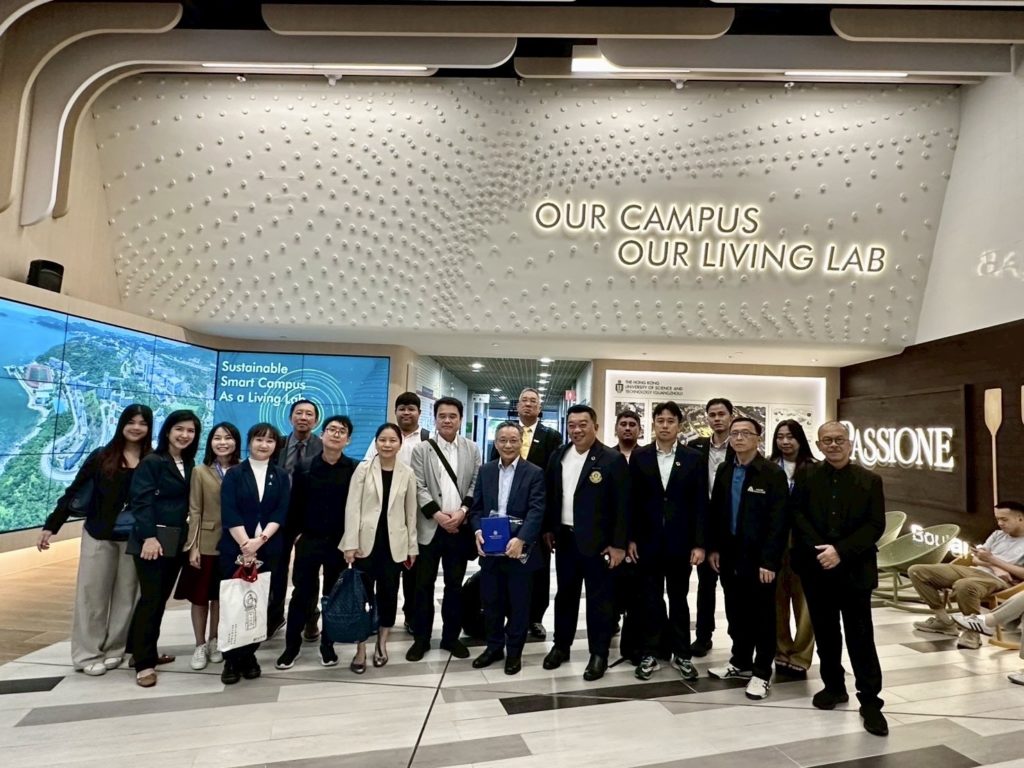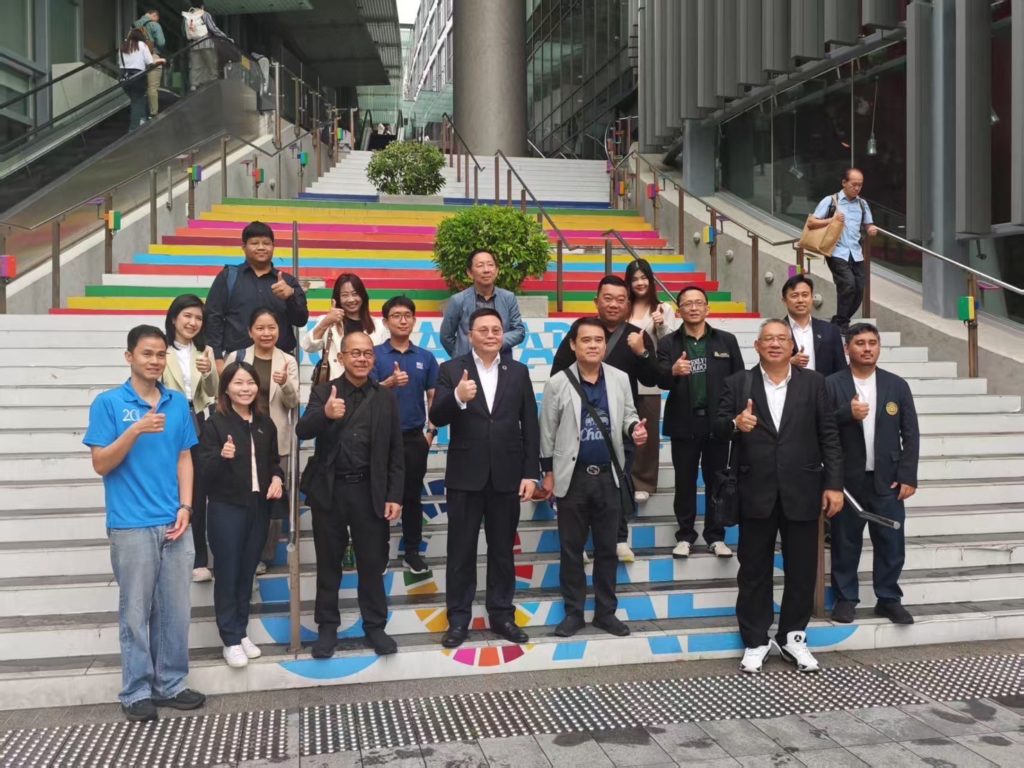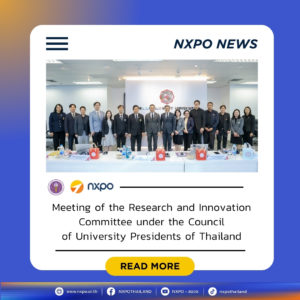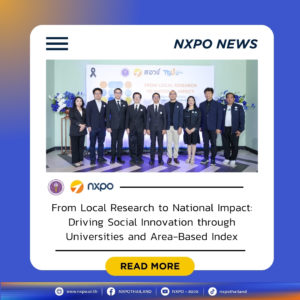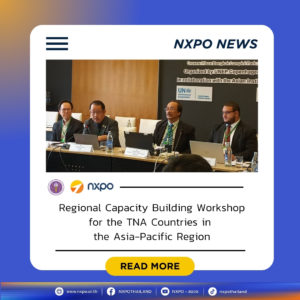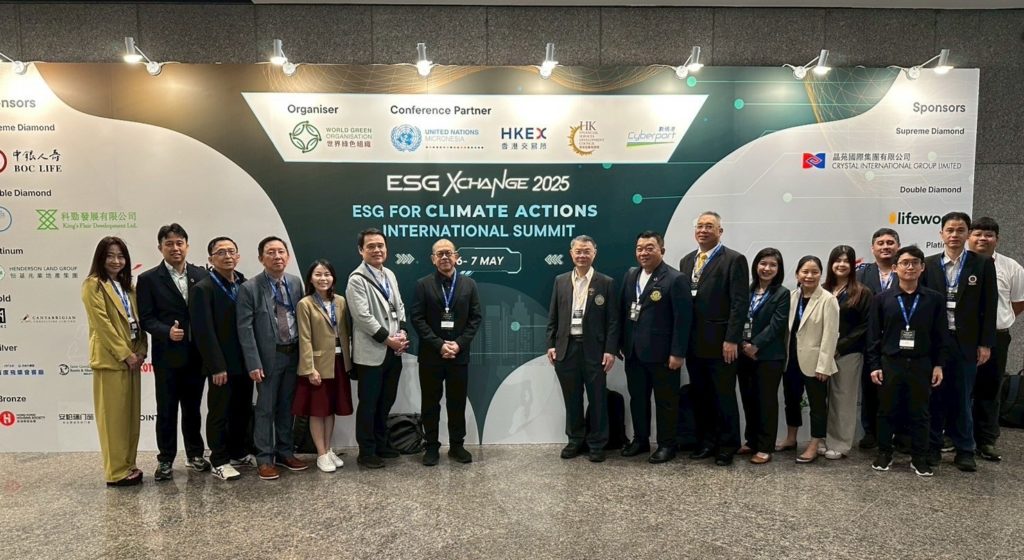
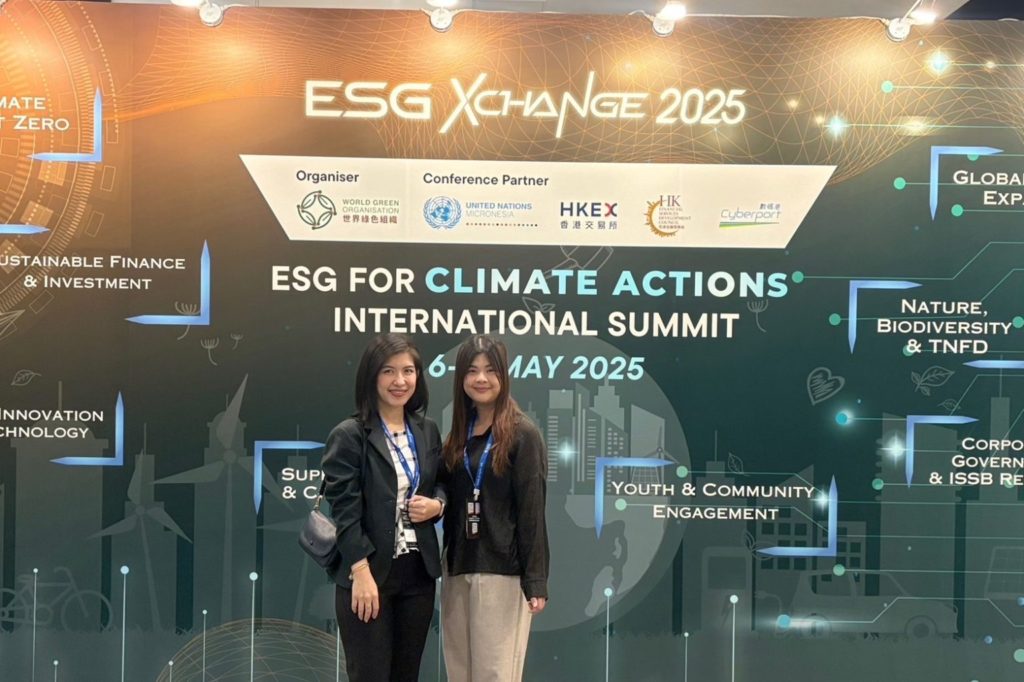
The NXPO delegation, led by Director of Sustainable Development Policy Division Dr. Saravanee Singtong, took part in the ESG Xchange 2025: ESG for Climate Actions International Summit, held at the Hong Kong Convention and Exhibition Centre (HKCEC). The NXPO team joined a delegation from Thailand comprising Assoc. Prof. Dr. Kitikorn Charmondusit, Dean of the Faculty of Environment and Resource Studies, Mahidol University; Asst. Prof. Ratchot Chompunich, Vice President of Kasetsart University; Prof. Dr. Ekkachai Mahaek, Vice President of Chiang Mai University; Assoc. Prof. Dr. Jarotwan Koiwanit, Vice President of King Mongkut’s Institute of Technology Ladkrabang; and Assoc. Prof. Sakda Katawaethwarag, Assistant to the President of King Mongkut’s University of Technology North Bangkok. The event also gathered participants from government agencies, the private sector, and international organizations including the United Nations Economic and Social Commission for Asia and the Pacific (UNESCAP), UN Micronesia, and the Global Reporting Initiative (GRI).
The summit served as a platform for exchanging insights and best practices on ESG (Environment, Social, and Governance), carbon neutrality, net zero emissions, and sustainability — crucial topics shaping today’s sustainable development agenda.
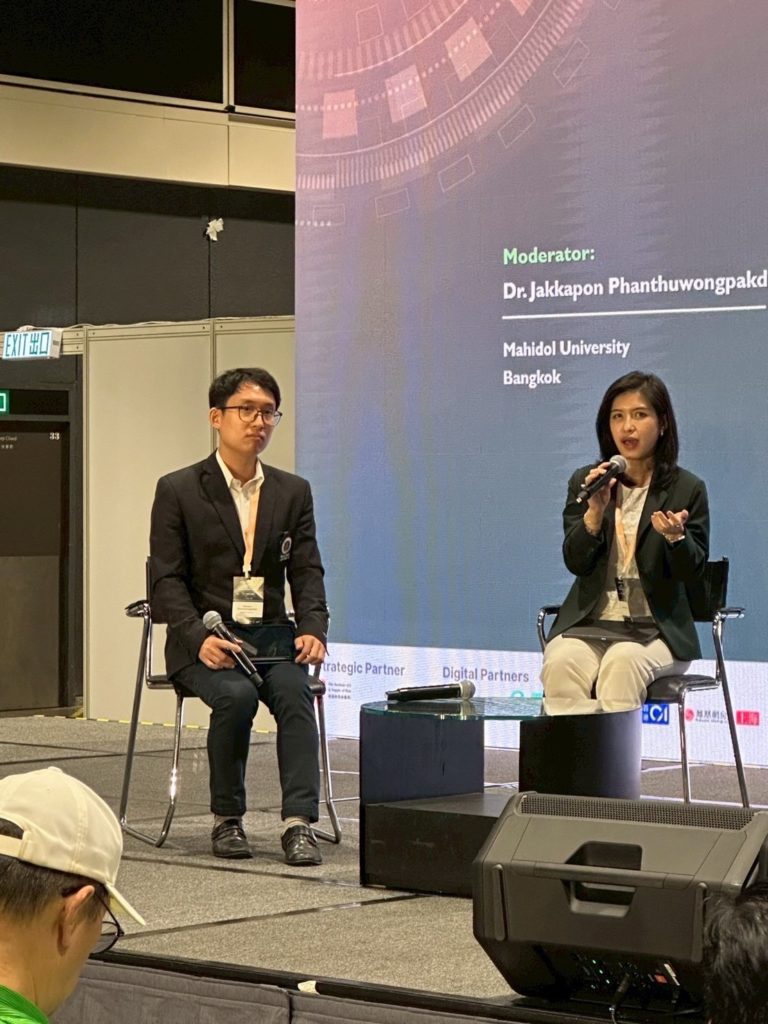
During the conference, Dr. Saravanee participated as a panelist in the discussion titled “Carbon Neutrality in Southeast Asian Campuses”, alongside Professor Xu Tian from Shanghai Jiao Tong University and Prof. Dr. Ekkachai Mahaek, representing the Sustainable University Network (SUN Thailand). The session was moderated by Dr. Jakkapon Phanthuwongpakdee from the Faculty of Environment and Resource Studies, Mahidol University. Dr. Saravanee presented NXPO’s initiative in developing the Net Zero Campus platform, designed to engage 172 universities in Thailand as active contributors to the country’s national net zero greenhouse gas emissions target. The initiative is driven in collaboration with the Council of University Presidents of Thailand (CUPT), the Office of the Permanent Secretary for Higher Education, Science, Research and Innovation, and the Department of Climate Change and Environment. She emphasized that while universities possess vital resources and capacities to support this goal, achieving outcomes requires a systemic framework that offers operational incentives, long-term financial support, performance indicators linked to budget systems, alignment with international university ranking criteria, and academic backing for faculty and researchers. The Net Zero Campus platform is not only a project, but a strategic catalyst for systemic transformation in line with global sustainability trends.

In addition, the delegation visited two leading institutions. The Hong Kong University of Science and Technology (HKUST), known for its commitment to sustainability, integrates green innovations and operates the “Sustainable Smart Campus as a Living Lab” as a core mechanism in its net zero transition. At The Chinese University of Hong Kong (CUHK), a range of initiatives have been implemented to support smart and sustainable city development, including solar-powered EV charging stations, green buildings, and waste reduction programs. These initiatives demonstrated how universities can effectively deploy innovations to reduce greenhouse gas emissions, develop skilled human capital, and pilot new technologies within campus settings before scaling them to commercial applications.
